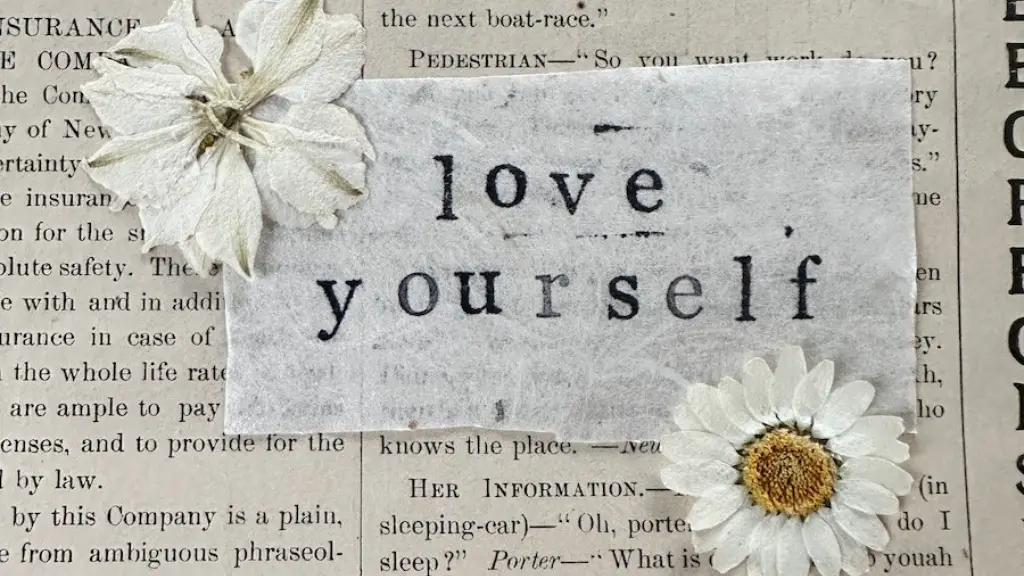How to Read Poetry for Pleasure
Poetry has been around for centuries, and most cultures have embraced it in some form. Reading poetry can provide a great way to relax and to express yourself. It can also provide an opportunity to experience new ideas or emotions. However, for many, reading poetry can be intimidating. Knowing how to approach and understand it can help one gain greater enjoyment and appreciation for poetry.
Before even reading the poem, it’s important to be aware of the context in which it was written. Knowing a little bit of background information about the poet, the style of poetry, or the historical context can help to make the poem more accessible. This can include researching the poet, the type of poem, or even the period in which it was penned. Seeking out an expert opinion or recommendation can also be helpful.
When it comes time to read the poem, take a few moments to contemplate its structure. Look at the lines and how they are divided. Pay attention to the length of each line, the type of poem this is (sonnet, haiku, etc.), and its shape. By studying the form of the poem, one may begin to uncover hints of its meaning. Seeing how the poem is structured can also help to recognize its meter and gain more insight into its musicality.
After considering the poem’s structure, it’s important to dive into its meaning. While some poems are meant to be appreciated by the beauty of the words, others may have a deeper purpose. Look for clues in the words or imagery in order to unlock the poem’s intentions. Consider its ideas, perspectives, and also its subtleties. Appreciate the tone and imagery that may lead one to experience a range of emotions.
Try to savor the words of the poem and learn to appreciate its beauty. Allow the poem to be its own work of art and sit with any uncertainty or challenges it may present. Don’t be afraid to re-read the poem or to consult with others for their interpretation. Don’t be too hard on yourself for not understanding the deeper message — reflect on the poem and consider how it made you feel.
Make time to read poetry as well. Don’t try to rush through the poem. Give yourself the chance to really appreciate and savor the words. Set expectations accordingly — if one sees poetry as a meaningful form of expression, it can soon become something both enjoyable and educational.
Methods of Appreciation
The poets of many cultures have used the written word to express the complexities of life. Trying to understand the poets of a different culture, language and period can be challenging. Instead, one can appreciate these works by trying to decipher the poem’s intrinsic beauty. Try to explore the possibilities of its language and imagery, even if its meaning is beyond one’s ability to comprehend.
The appreciation of poetry requires a certain level of openness for understanding it and as this is highly subjective. This can be an opportunity to experience and explore a variety of ideas. Ask questions about the poem and see how it encourages one to think about the expressed emotion and experience the poem within the given context.
One way of experiencing poetry is to understand the intertwining of sound and meaning. The rhythm of a poem can be expressed with the use of punctuation, meter and rhyme. Visually, it can be expressed through the arrangement of words, lines and stanzas. Listening to a recording of the poem being read can help to experience the nuances of the poem’s meter and sound.
Rather than letting the poem remain as an abstract piece of work, it’s also possible to explore how it speaks to the reader’s own life experiences. A poem can be seen as a reflection of the current socio-political environment, or even one’s own emotions and state of being. Consider the poem’s current relevance and explore how it resonates with the reader.
By actively engaging with a poem, it’s possible to appreciate its nuances and discover a more profound and satisfying understanding of its words and core meaning. Take the time to contemplate the poem and allow it to unfold, as one’s understanding of it may grow and develop.
Beyond the Single Poem
While single works can be appreciated, reading an entire collection of poems can provide an opportunity to explore a range of ideas, emotions, and contexts. Thematic collections can provide a great way for one to explore how and why certain matters are addressed in this particular type of writing. Taking a broader approach to the poem can allow one to explore the many facets within.
The intention of the poet may not be immediately apparent and reflecting on the poem’s reception and legacy can greatly aid one in understanding the poem and gaining a greater appreciation for it. Furthermore, reading the words of multiple poets can provide a better understanding of the evolution of poetic writing and the ideas surrounding it.
Having a diverse knowledge of various poets and works can also be a great source of inspiration and a guide to the type of poetry one may most enjoy. It could be romantic, surrealist, or even dark and emotive. Taking the time to explore and get to know the works of specific writers can help to pinpoint the interests of the reader and lead them in the right direction.
Gaining a Deeper Connection
The benefits of reading poetry can extend beyond pleasure and personal expression; it can also offer insight into personal emotions. By approaching the poem as an exploration of one’s own journey and thoughts, it’s possible to gain a deeper personal connection. Reflect on how one feels and think about how these feelings are expressed in the poem.
Poetry can also be used as an outlet for personal reflection and introspection. Reading with the intention of learning about oneself can help to benefit both the reader and the poet. Consider how your current life experiences are reflected in the poem and pay attention to how it speaks to one’s own emotions.
Reading poems aloud can also be a great way to gain a more meaningful connection. As one reads, they can also experience how their own understanding of the poem develops and changes. Doing so can make the poem come alive and provide a stronger insight into the poet’s intentions and the written words.
In conclusion, it’s important to make the effort to read poetry for pleasure. This can involve setting aside the time for it, getting familiar with the poem’s context, studying its structure and form, and exploring how it speaks to the reader. Be mindful of the emotions it evokes and how it can speak to one’s own life experiences. With greater appreciation of poetry, reading it can become both enjoyable and rewarding.
Elements of Expression
As poetry is such a personal form of expression, it’s vital to recognize that there is no right or wrong way of interpreting it. Different people may experience the poem in various ways and it’s important to understand these. Gaining insight into the poet’s perspective, while also taking one’s personal response into account, helps to create a more meaningful connection to the poem.
The process of deciphering the poet’s emotions and the intended message of the poem can also be part of the process of reading for pleasure. Consider what the poem has to say and think about the emotions it inspires. Diving deeper into the poem can help to understand the complexities of its ideas and the feelings associated with them.
Sometimes, understanding poetry is more about the experience of reading than it is about looking for a clear, definitive meaning. Rather than searching for a hidden message in the poem, it’s important to enjoy the flow and the language that was used to bring the poem to life. Allow yourself the opportunity to be moved by the poem’s sound and the beauty of the imagery.
The Power of Relating
In some cases, it’s possible to relate the poem to one’s own life situations. This can provide a powerful and emotional connection to the poem as it may allow one to better understand the poet’s intentions. Finding the similarity between one’s life and the situation described in the poem can be a valuable source of insight into the poem and its powerful meaning.
Relating the poem to real-life experiences can also be a great source of inner growth. Take the time to explore the poem’s message and look for ways to apply it to one’s own life. Think about how the poem relates to you, and how it might be relevant to your current situation. Processing the poem in this manner encourages self-reflection and personal growth.
Finally, don’t be afraid to reach out to the poet or to seek out other people’s interpretations of the poem. It can be a great way to gain a greater understanding of the poem and to engage in discussions about it. Social media can be a great platform for these conversations and a great way to connect with like-minded individuals.





